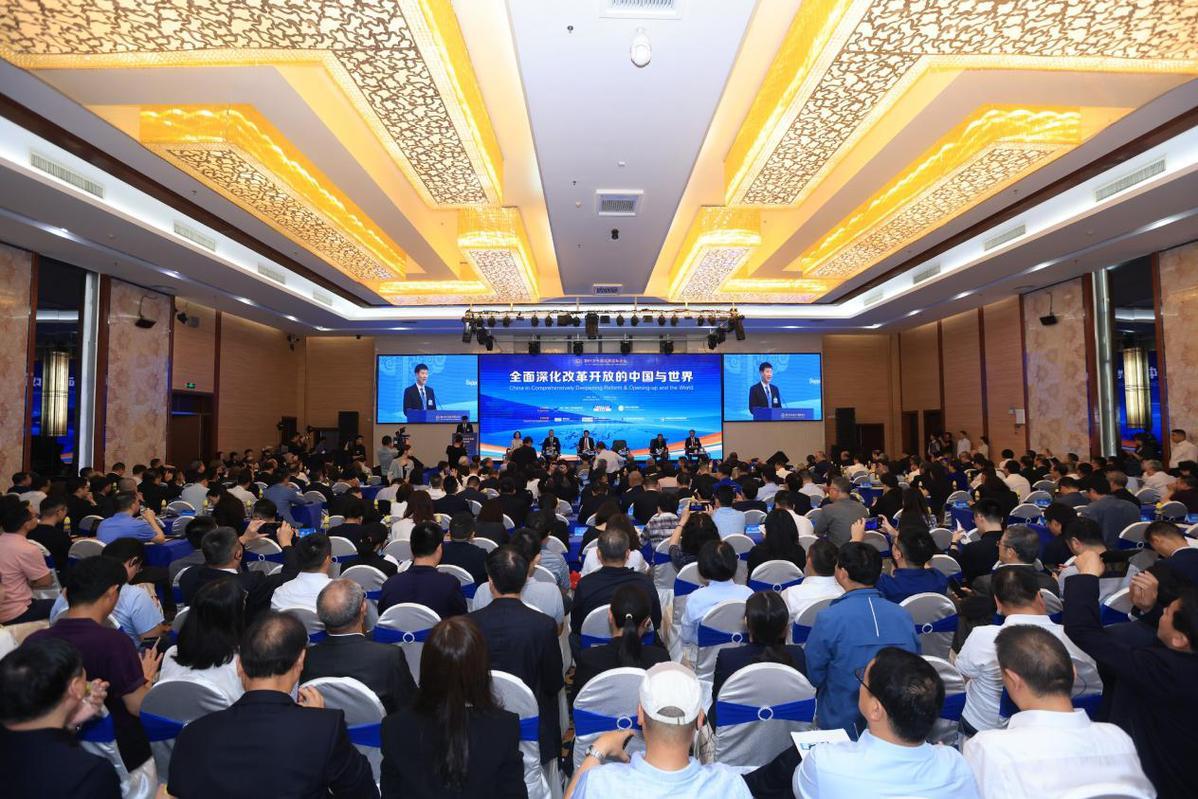
New drivers of growth needed amid downward pressure, uncertainties
China should pursue a new round of structural reforms in the face of mounting downward economic pressure and rising external uncertainties, in an effort to foster new drivers of growth and inject long-term development momentum, domestic and overseas experts said at the 89th International Forum on China Reform in Haikou, Hainan province.
The structural reforms should include those on the demand side — with a focus on, for example, giving migrant workers permanent residence and access to public services enjoyed by city dwellers — as well as supply-side reforms that involve advancing green and digital development, they said at the two-day event that began on Saturday.
As China is responsible for over 18 percent of global GDP, everything is dependent on the country's economic prospects even though downward pressure remains, said Tamas Hajba, senior adviser for China at the Organization for Economic Cooperation and Development.
However, recently released data suggests the Chinese economy has already bottomed out, Hajba said, adding there are a number of areas where ongoing or planned reforms in China will boost its growth and productivity, such as providing all citizens equitable access to public services, advancing green development and leveraging digitalization.
In particular, a reform policy that would allow migrant workers to become urban citizens, as well as a policy to reform the rural land system, should be pushed forward in a mutually reinforcing way to ensure that production factors are allocated by the market, said Cao Yuanzheng, chairman of Bank of China International Research.
Last year, the number of rural migrant workers totaled 295.6 million, with their average monthly income coming in at 4,615 yuan ($630), the latest data from the National Bureau of Statistics showed.
Further reforms toward social security, education and other systems are needed to encourage migrant workers to settle in urban areas, and measures should be taken to ensure that they get property-based income through reforms of collective land and residential land in rural areas, Cao said.
These steps combined will enhance migrant workers' sense of belonging and shore up their willingness and capacity to live and spend in cities, which will expand demand, catalyze consumption and drive growth, Cao added.
In addition, green development will be conducive to China's economic restructuring, said Zhang Ping, a research fellow at the Institute of Economic Research with the Chinese Academy of Social Sciences, noting that China's three major tech-intensive green products — solar batteries, lithium-ion batteries and electric vehicles — should grow into new engines of foreign trade and become pillars of the national economy.
China is responsible for 60 percent of the world's zero-carbon technology manufacturing, creating millions of jobs and new economic activity in its territory. As high as 74 percent of battery manufacturing capacity is located in China, resulting in strong market power and industrial leadership, according to a report by Strategic Perspectives, a Brussels-based think tank.
Green development is crucial for the upcoming phase of global competition. In order to help China achieve its potential growth rate and complete the transition to high-quality development, market-oriented reforms are in urgent need to unleash the power of innovation in this regard, Zhang said.
Furthermore, China has become a world leader in a number of digital services, such as e-commerce, online payment and ride hailing, and over 90 percent of its internet services are covered by its five inexpensive mobile networks, Hajba said, adding that fully leveraging digitalization will create business opportunities, enhance employment and lead to sustainable growth.
China's reform agenda can provide a significant boost to invigorating its economy and addressing challenges and, in turn, contribute to global development, Hajba said